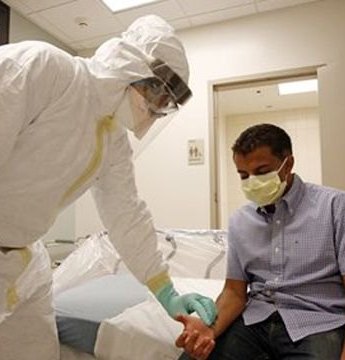Individual genetic differences may affect your ability to survive Ebola
Scientists have been puzzling for years over why some people survive Ebola while many others perish. A new study by University of Washington provides strong evidence that individual genetic differences play a major role in whether people die from the disease. Mice used in the study were generated from eight different strains of the animal and were bred to represent human genetic diversity. Among the genetically diverse mice, the researchers saw a full range of Ebola symptoms when they infected the animals with the virus. Some mice were resistant to infection, some showed symptoms but survived, and some were similar to classical lab mice (they died without showing bleeding symptoms).
The genetic background of the individual who is infected plays a really significant role in determining how serious their Ebola virus disease is going to be.
Angela Rasmussen, a virologist at the University of Washington
About 40 per cent of the animals developed blood and liver problems similar to the hemorrhagic disease that is seen in some Ebola patients, the researchers said. A major question has been whether Ebola survivors have had some prior viral exposure that enables their immune systems to fight the infection or whether there is something genetically unique about survivors that makes them resistant. The mouse study cannot address the issue of prior immunity but makes a strong case for the idea that an individual’s genetic code plays a role in surviving Ebola.
Depending on what kind of disease outcome you have, different genes get turned off and turned on.
Angela Rasmussen

Health ebola genetic